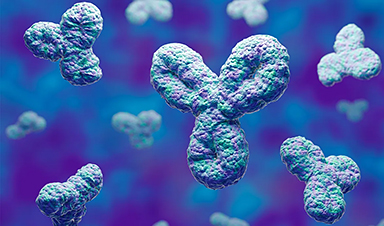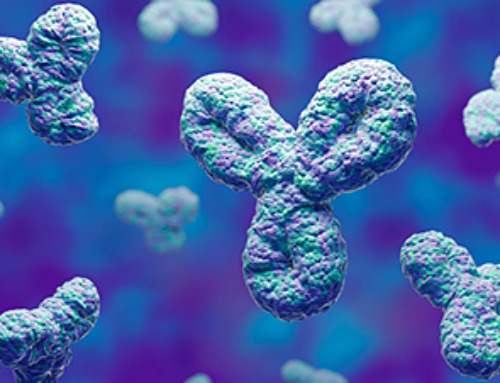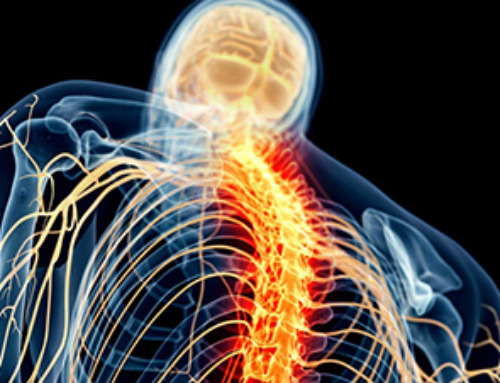You can’t blame your brain for your actions!
Neuroscientists at HSE University have challenged the famous studies that question the free will of our decisions. You can’t shift responsibility for your actions to the brain. The results of the new work were recently published in the journal Neuropsychologia.
Historical Context of the Free Will Debate
The dispute about how much free will people have in making their decisions has been going on for decades. Neuroscientists have joined this discussion thanks to the electroencephalographic (EEG) experiments of Benjamin Libet. In the 1970-1980s, he showed that 0.5–1.5 seconds before conscious awareness of the intention to perform a movement, subjects emit EEG activity that predicts this movement. It turns out that the brain makes a decision and sends readiness potential before a person realizes it, and our actions are nothing more than the result of an unconscious physiological process in the brain.
The results of Libet’s experiments have generated a lot of controversy about free will, and some neurophysiologists have even concluded that it does not exist. Moreover, Libet’s experiment has been repeated using functional magnetic resonance imaging, and it turns out that the decision of the subject can be predicted even 6-10 seconds before their conscious awareness of it.
HSE University’s Take on the Paradigm
The staff of the HSE Institute for Cognitive Neuroscience questioned this experimental paradigm and in their new study confirmed that the time of intention awareness in Libet’s experiments was determined incorrectly. In addition, EEG activity, or the brain signal indicating the readiness of a decision, which was recorded by Benjamin Libet before the decision was made, actually has no direct link to this decision.
In the Libet’s original experiment, the subjects were asked to occasionally bend their wrists and at the same time remember the moment when they felt ready to perform this action. The time of intention awareness was recorded from the words of the subjects themselves: they observed a point that moved along the screen dial, similar to a clock hand, and indicated the position of the point when they felt the desire to bend their hand. The moment of the final decision was determined by the exact reading of the sensor attached to the wrist of the subjects.
The HSE neuroscientists repeated the experiment with two groups of subjects, adding small changes to the task in one of the groups. Using behavioral reports and hypersensitive EEG techniques, the scientists investigated the correlation between the time of intention awareness and the time of final decision. It turned out that the time of awareness can be influenced by experimental procedures: for example, without certain training, the subjects are barely able to determine their intentions, and the traditional Libet paradigm pushes them to the feeling that they can determine the moment of decision-making and intention. Apparently, the instruction itself in the Libet task makes the participants feel that the intention should emerge long before the final decision is made.
In addition, the study confirmed that there is no direct link between the activity of the brain preceding the action and the intention to perform the action. The sense of intention emerged in the subjects at different points in time, whereas the readiness potential was always registered at about the same time. Thus, the readiness potential may reflect the general dynamics of the decision-making process about making a move, but it does not mean that the intention to act has already been generated.
Concluding Thoughts
“Our study highlights the ambiguity of Libet’s research and proves the absence of a direct correlation between the brain signal and decision-making. It appears that the classical Libet paradigm is not suitable for answering the question of whether we have free will while making decisions. We need to come up with a new approach to this extremely interesting scientific puzzle,” says Dmitry Bredikhin, author of the research and junior Research Fellow at the Centre for Cognition & Decision Making.
“Neuroscience tries to answer key questions in our life, including questions of free will and responsibility for our actions. We need to be especially precise in order to draw conclusions that affect our outlook and attitude toward life. Therefore, we tried to understand the predetermination of our decisions and confirmed a number of shortcomings in the famous experiments of Benjamin Libet. This does not mean that we have closed this issue of the illusory nature of our free will, but rather emphasizes that the discussion continues. This might be one of the most interesting questions in modern science, to which we have yet to give a definitive answer,” comments Vasily Klucharev, Project coordinator and leading Research Fellow of the Institute for Cognitive Neuroscience.
Reference: “(Non)-experiencing the intention to move: On the comparisons between the Readiness Potential onset and Libet’s W-time” by Dimitri Bredikhin, Ksenia Germanova, Vadim Nikulin and Vasily Klucharev, 29 April 2023, Neuropsychologia.
DOI: 10.1016/j.neuropsychologia.2023.108570
News
Specially engineered antibody delivers RNA therapy to treatment-resistant tumors
Elias Quijano, PhD; Diana Martinez-Saucedo, PhD; Zaira Ianniello, PhD; and Natasha Pinto-Medici, PhD, there are 25 other contributors, most from Yale's Department of Therapeutic Radiology and from the departments of genetics, molecular biophysics and [...]
Vaccinated women face fewer cervical cancer risks
New data from Denmark shows the HPV vaccine’s powerful long-term impact, while also revealing why cervical cancer screening is still essential. A Danish study published in the journal Eurosurveillance reports that women who received the human [...]
3D-printed implant offers a potential new route to repair spinal cord injuries
A research team at RCSI University of Medicine and Health Sciences has developed a 3-D printed implant to deliver electrical stimulation to injured areas of the spinal cord, offering a potential new route to [...]
Nanocrystals Carrying Radioisotopes Offer New Hope for Cancer Treatment
The Science Scientists have developed tiny nanocrystal particles made up of isotopes of the elements lanthanum, vanadium, and oxygen for use in treating cancer. These crystals are smaller than many microbes and can carry isotopes of [...]
New Once-a-Week Shot Promises Life-Changing Relief for Parkinson’s Patients
A once-a-week shot from Australian scientists could spare people with Parkinson’s the grind of taking pills several times a day. The tiny, biodegradable gel sits under the skin and releases steady doses of two [...]
Weekly injectable drug offers hope for Parkinson’s patients
A new weekly injectable drug could transform the lives of more than eight million people living with Parkinson's disease, potentially replacing the need for multiple daily tablets. Scientists from the University of South Australia [...]
Most Plastic in the Ocean Is Invisible—And Deadly
Nanoplastics—particles smaller than a human hair—can pass through cell walls and enter the food web. New research suggest 27 million metric tons of nanoplastics are spread across just the top layer of the North [...]
Repurposed drugs could calm the immune system’s response to nanomedicine
An international study led by researchers at the University of Colorado Anschutz Medical Campus has identified a promising strategy to enhance the safety of nanomedicines, advanced therapies often used in cancer and vaccine treatments, [...]
Nano-Enhanced Hydrogel Strategies for Cartilage Repair
A recent article in Engineering describes the development of a protein-based nanocomposite hydrogel designed to deliver two therapeutic agents—dexamethasone (Dex) and kartogenin (KGN)—to support cartilage repair. The hydrogel is engineered to modulate immune responses and promote [...]
New Cancer Drug Blocks Tumors Without Debilitating Side Effects
A new drug targets RAS-PI3Kα pathways without harmful side effects. It was developed using high-performance computing and AI. A new cancer drug candidate, developed through a collaboration between Lawrence Livermore National Laboratory (LLNL), BridgeBio Oncology [...]
Scientists Are Pretty Close to Replicating the First Thing That Ever Lived
For 400 million years, a leading hypothesis claims, Earth was an “RNA World,” meaning that life must’ve first replicated from RNA before the arrival of proteins and DNA. Unfortunately, scientists have failed to find [...]
Why ‘Peniaphobia’ Is Exploding Among Young People (And Why We Should Be Concerned)
An insidious illness is taking hold among a growing proportion of young people. Little known to the general public, peniaphobia—the fear of becoming poor—is gaining ground among teens and young adults. Discover the causes [...]
Team finds flawed data in recent study relevant to coronavirus antiviral development
The COVID pandemic illustrated how urgently we need antiviral medications capable of treating coronavirus infections. To aid this effort, researchers quickly homed in on part of SARS-CoV-2's molecular structure known as the NiRAN domain—an [...]
Drug-Coated Neural Implants Reduce Immune Rejection
Summary: A new study shows that coating neural prosthetic implants with the anti-inflammatory drug dexamethasone helps reduce the body’s immune response and scar tissue formation. This strategy enhances the long-term performance and stability of electrodes [...]
Scientists discover cancer-fighting bacteria that ‘soak up’ forever chemicals in the body
A family of healthy bacteria may help 'soak up' toxic forever chemicals in the body, warding off their cancerous effects. Forever chemicals, also known as PFAS (per- and polyfluoroalkyl substances), are toxic chemicals that [...]
Johns Hopkins Researchers Uncover a New Way To Kill Cancer Cells
A new study reveals that blocking ribosomal RNA production rewires cancer cell behavior and could help treat genetically unstable tumors. Researchers at the Johns Hopkins Kimmel Cancer Center and the Department of Radiation Oncology and Molecular [...]





















